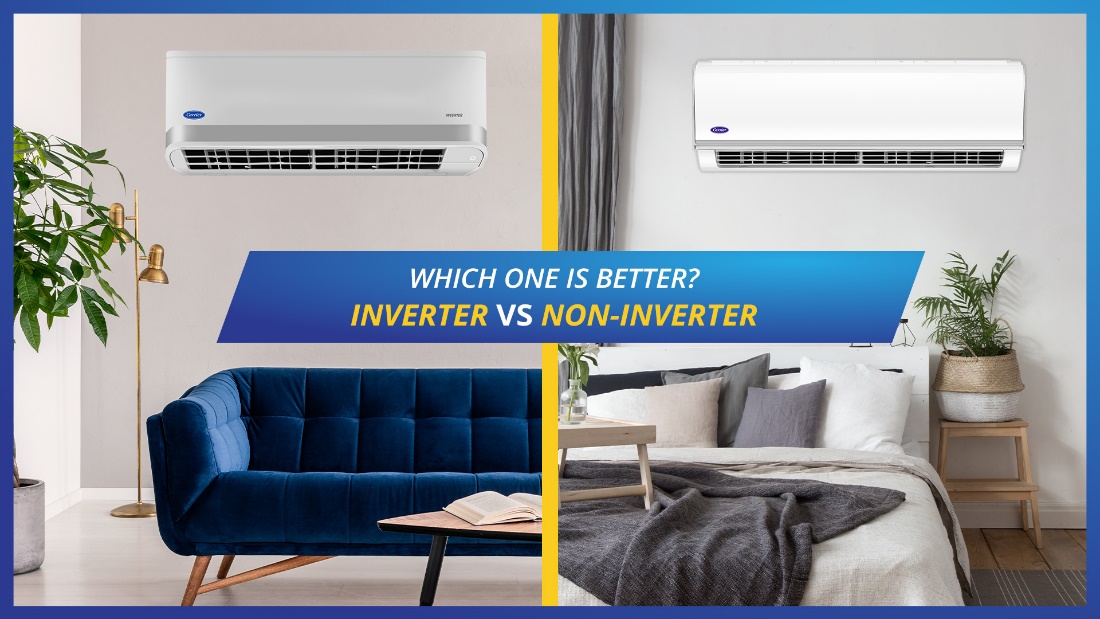Inverter or Non-Inverter Aircon: Which One is Better?

If you’re someone who has looked through aircon catalogs, you’ve probably asked yourself the age-old question of: “Should I buy an inverter or a non-inverter aircon?” And with the weather in the Philippines being hot and humid almost all year round, aircons tend to be used more than 8 hours a day, which could lead to more energy consumption which could cost more if you’re not getting the right aircon unit.
Not only that, but you also have to think about aircon installation and maintenance works like cleaning services soon after. With SureServ, you don’t need to worry about the hassles of separately availing these services with its All-In Sure Deals package, which offers end to end air conditioning solutions.
We’ve all been there - we’ve asked about which type of aircon will help us save money on electricity, or which one is more energy-saving... or just the simple question of which aircon would look better in our rooms.
But what is the meaning of “inverter aircon”? In technical terms, an inverter controls the speed of the compressor motor to regulate the temperature. Generally, an inverter aircon means that it is an aircon type that’s more efficient and provides a lower electricity cost in the long run. It is also energy-saving, providing an eco-friendlier option for air conditioning unit owners.
On the other hand, non-inverter aircon units are less advanced in their technology but are generally cheaper in unit price.
Despite learning the meaning of what an inverter or a non-inverter aircon is, the question still remains: which one is the best aircon to buy? To help you decide, here’s a pros and cons list to know which aircon type is perfect for you:

- Cheaper Price: Non-inverter aircon units and their parts are generally cheaper than the inverter ones.
- Simple to Use: Non-inverter aircon units are easier to clean and maintain.
- Savings on Repair: Non-inverter aircon has lower costs for aftermarket parts.
- Higher Energy Cost: Unable to regulate electric power according to room size which leads to energy waste.
- Less Efficient: Non-inverter aircon units are not as energy- and cost-efficient.

- Energy Efficient: It has energy-saving technology which helps you save on electricity.
- Cost & Energy Efficient: Inverter aircon units are more cost- and energy-efficient in the long run. In fact, an inverter aircon’s electricity consumption in the Philippines is significantly lower than a non-inverter window-type aircon.
- Intelligent Sensors: Includes built-in sensors to detect malfunctions for error diagnostics to prolong the life of the unit that is under harsh conditions.
- More Expensive Price: Inverter aircon units are usually priced a little higher compared to non-inverter ones; their parts are also a bit pricier.
- Professional Installation: Inverter aircon units that are split type require a professional technician to install.
- Costly to Repair: Inverter aircon units are equipped with mostly electronic components which have a higher market price for the aftermarket part.
To sum it up, if your aircon usage is more than 8 hours a day (especially in the Philippine heat), it’s always better to get an inverter aircon. But once you’ve chosen which aircon type is the perfect fit for you, you can now have it installed at your preferred time! SureServ makes it possible for you to have a hassle-free experience when it comes to purchasing, installation, cleaning and other air conditioning services.
Have a look at SureServ’s packaged solutions and BOOK A SERVICE of your choice.